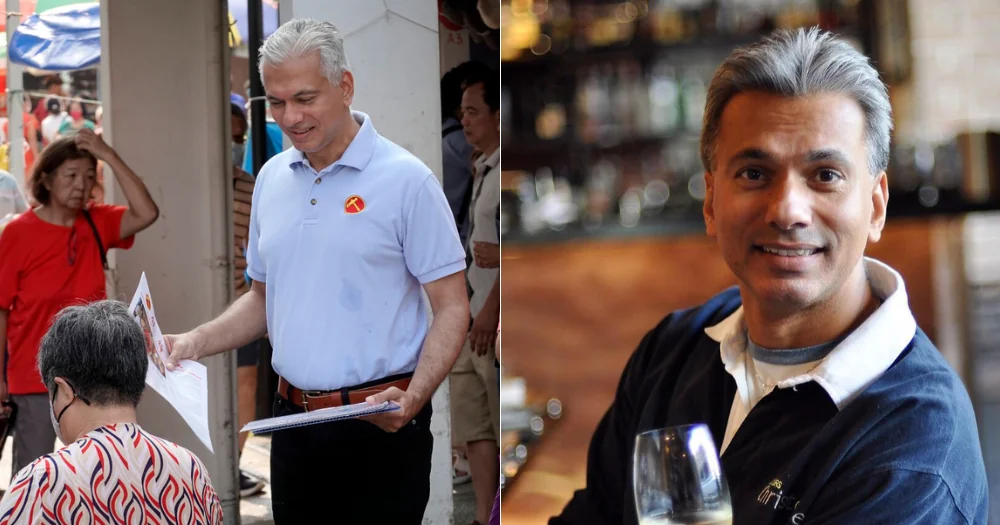Harpreet Singh was almost disbarred due to an investigation into an ethical breach
Ethically, the case remains a gray zone — legally permissible, yet morally debatable

In 2014, Harpreet Singh Nehal SC, then a Senior Counsel at Cavenagh Law LLP, and two unnamed colleagues found themselves at the center of an ethical storm and was at risk of being disbarred if found guilty.
Tasked with defending Ernest Ferdinand Perez De La Sala in a Singapore trial over a near-billion-dollar trust dispute — Compañia De Navegación Palomar, SA v Ernest Ferdinand Perez De La Sala — they prepared five witnesses in Sydney.
Their methods, including group sessions, were standard for complex litigation, involving affidavit reviews, mock cross-examinations, and error corrections, with safeguards like barring witnesses from commenting on each other’s testimony.
What triggered the investigation
Trouble brewed when a 14-page “script” surfaced mid-trial in 2017, prompting High Court Justice Quentin Loh to question the testimony’s integrity, likening it to coaching banned in England’s case R v Momodou.
The Attorney-General launched a disciplinary probe, but in May 2018, the tribunal exonerated Harpreet and his colleagues.
The decision rested on multiple grounds: the 2010 ethics code lacked clear rules against group preparation, no evidence showed misconduct, and their approach was deemed acceptable at the time.
Harpreet: Where do you hide your face?
Harpreet’s entanglement, detailed in a 2024 JOM article, was a “trial by fire.”
He recalled the 2017 allegations nearly unraveling his career: “When I first heard it, I cooped myself up in my apartment for three full days. ‘Because where do you hide your face?’”
A guilty verdict could have meant disbarment, but after a year-long process, the tribunal found the charges baseless, fully vindicating him and his team.
Why were the lawyers cleared?
The tribunal’s reasoning, per Jeffrey Pinsler SC’s 2018 analysis in the Singapore Academy of Law Journal, was layered:
- No clear rules: The LP(PC)R 2010 didn’t ban group preparation or define its limits, with “no express law or consensus” against it (para 6.1.1).
- No misconduct: Safeguards minimized influence, and the D-3 script wasn’t tied to the lawyers (paras 6.2.4, 6.3.1).
- Legitimate practice: Group sessions, common in complex cases, could enhance accuracy—e.g., jogging memory (para 6.2.7)—with little evidence overlap reducing risks (para 6.2.6).
- No malice: Absent intent to deceive, charges under the Legal Profession Act were “wholly unjustified” (para 21).
Later, the Court of Appeal (2018 SGCA 16) cautioned against group preparation as an evidentiary concern, not a retroactive ethical rule, reinforcing the regulatory gap’s role in their clearance.
No ethical breach, but...
The findings suggest their clearance hinged largely on a regulatory void, raising urgent questions about morality, legality, and the need for reform in Singapore’s legal ethics framework.
Legality cleared them, but morality lingers.
Ethically, the case teeters on a knife’s edge. Group preparation risks memory contamination — a psychological reality — yet it’s a tool used globally, from Australia’s sanctioned conferences to the U.S.’s liberal rehearsals.
Harpreet’s team likely aimed for accuracy, not manipulation, and their safeguards suggest good faith.
Still, the “script” and judicial unease cast shadows: perception matters. Practices blurring witness independence, even unintentionally, chip at justice’s foundation.
In 2014, Singapore’s Legal Profession (Professional Conduct) Rules 2010 offered no specific guidance on witness preparation, let alone group sessions.
The tribunal noted the gap, observing no express prohibition or professional consensus against their methods.
Ethics can falter not from malice, but from the absence of clarity.
The Compania saga reveals a profession navigating murky waters without a compass.
The lawyers’ exoneration wasn’t a triumph of ethics but a symptom of a system unprepared for modern litigation’s complexities.
Pinsler’s call for explicit rules in the 2015 ethics code rings truer today — guidelines defining permissible preparation, mandating transparency, and guarding against contamination could have preempted this mess.
So, were they ethical? Yes, given the context, but with a caveat: ethics demands more than legal compliance.
Clear rules would protect practitioners from retroactive scrutiny and ensure testimony’s integrity.
Until then, cases like the one Harpreet Singh was involved in will linger as cautionary tales — proof that in the absence of clarity, even the well-intentioned tread a fine line.
Ethically, the case remains a gray zone — legally permissible, yet morally debatable.

